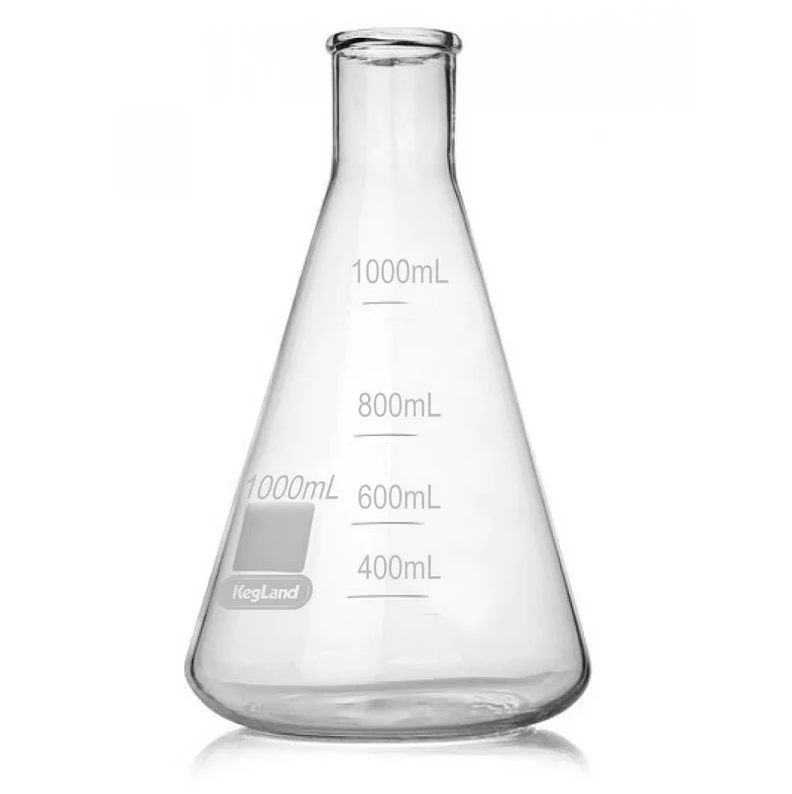Borosilicate Erlenmeyer Conical Flask 1000mL
Borosilicate Erlenmeyer Conical Flask 1000mL
Couldn't load pickup availability
Erlenmeyer Conical Flask – 1000 mL (Borosilicate Glass)
This 1000 mL borosilicate Erlenmeyer flask is ideal for medium yeast starters using a stir plate. Propagating healthy yeast can take your beer to the next level — producing clean, flavourful fermentations instead of the stressed flavours that occur when under-pitching.
Perfect for ale and lager yeast propagation, this flask is also great for transferring yeast starters from larger flasks (3000–5000 mL) on brew day and can be used to gently stir yeast back into suspension to bring them up to pitching temperature.
Made from durable borosilicate glass, it offers excellent thermal and chemical resistance — ideal for brewing, laboratory, or yeast storage applications.
Key Features:
-
Capacity: 1000 mL (1 L)
-
Material: Borosilicate glass – heat and chemical resistant
-
Perfect for medium yeast starters and stir plate use
-
Excellent for yeast propagation and storage
-
Ideal for lager and ale fermentations
-
Dimensions (mm): 130 (L) × 130 (W) × 225 (H) × 36 (opening)
Safety warnings:
**Please still exercise care when handling these and any other Borosilicate glass.**
There is a common misconception that Borosilicate glass is virtually bulletproof and can handle any dramatic temperature that is thrown at it. This is not strictly true.
Though it does have an incredible ability to withstand sudden and drastic temperature shocks compared to your average soda-lime glass, it should still be treated consciously with care.
Cool all glassware slowly to prevent breakage, unless you are using VYCOR glassware which can go from high heat to ice water with no damage.
Do not take your boiled flask directly from the stovetop straight into a bath of ice water. Though some people do this without failure, borosilicate glass is not designed for such an application. Please allow the flask to cool for a few minutes before running under water, before placing into an ice bath; the slower you introduce your flasks to temperature changes, the longer it will last. Going from fire to ice in a matter of seconds will introduce incredible amounts of stress to the glass structure. While the glass may be able to withstand this some of the time, other times you may not be so lucky. If the temperature differential is big enough, it will shatter. All Borosilicate glass will break eventually after a number of heat/cool cycles, it is impossible to give an exact number to determine when, but this is a natural an inherent feature of the material.
Please do not boil your flasks dry or dry them out using a stove. The temperature for drying should not exceed 140°C, which a naked flame can easily exceed.
Do not heat glassware that is etched, cracked, chipped, nicked, or scratched. It is more prone to break.
Do not heat glassware directly on electrical heating elements. Excessive stress will be induced in the glass, and this can result in breakage.
Small Bubbles that are less than 5mm and not located directly on the bottom of the flask is an acceptable manufacturing blemish.
Share


